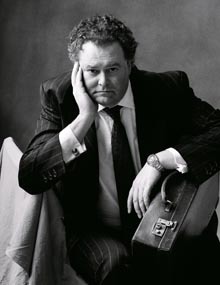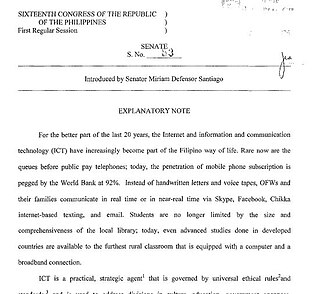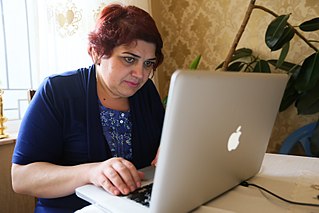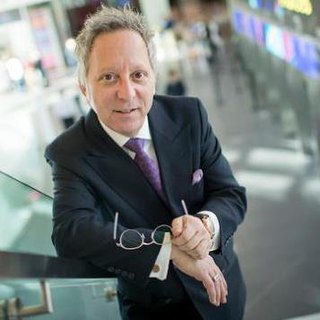
Defamation is a communication that injures a third party's reputation and causes a legally redressable injury. The precise legal definition of defamation varies from country to country. It is not necessarily restricted to making assertions that are falsifiable, and can extend to concepts that are more abstract than reputation – like dignity and honour. In the English-speaking world, the law of defamation traditionally distinguishes between libel and slander. It is treated as a civil wrong, as a criminal offence, or both.
McDonald's Corporation v Steel & Morris[1997] EWHC 366 (QB), known as "the McLibel case", was an English lawsuit for libel filed by McDonald's Corporation against environmental activists Helen Steel and David Morris over a factsheet critical of the company. Each of two hearings in English courts found some of the leaflet's contested claims to be libellous and others to be true.
New York Times Co. v. Sullivan, 376 U.S. 254 (1964), was a landmark U.S. Supreme Court decision ruling that the freedom of speech protections in the First Amendment to the U.S. Constitution restrict the ability of public officials to sue for defamation. The decision held that if a plaintiff in a defamation lawsuit is a public official or candidate for public office, then not only must they prove the normal elements of defamation—publication of a false defamatory statement to a third party—they must also prove that the statement was made with "actual malice", meaning the defendant either knew the statement was false or recklessly disregarded whether it might be false. New York Times Co. v. Sullivan is frequently ranked as one of the greatest Supreme Court decisions of the modern era.
Freedom of the press in the United States is legally protected by the First Amendment to the United States Constitution.
Libel tourism is a term, first coined by Geoffrey Robertson, to describe forum shopping for libel suits. It particularly refers to the practice of pursuing a case in England and Wales, in preference to other jurisdictions, such as the United States, which provide more extensive defenses for those accused of making derogatory statements.
Source protection, sometimes also referred to as source confidentiality or in the U.S. as the reporter's privilege, is a right accorded to journalists under the laws of many countries, as well as under international law. It prohibits authorities, including the courts, from compelling a journalist to reveal the identity of an anonymous source for a story. The right is based on a recognition that without a strong guarantee of anonymity, many would be deterred from coming forward and sharing information of public interests with journalists.
Sir David Eady is a retired High Court judge in England and Wales. As a judge, he is known for having presided over many high-profile libel and privacy cases.
Modern libel and slander laws in many countries are originally descended from English defamation law. The history of defamation law in England is somewhat obscure; civil actions for damages seem to have been relatively frequent as far back as the Statute of Gloucester in the reign of Edward I (1272–1307). The law of libel emerged during the reign of James I (1603–1625) under Attorney General Edward Coke who started a series of libel prosecutions. Scholars frequently attribute strict English defamation law to James I's outlawing of duelling. From that time, both the criminal and civil remedies have been found in full operation.
The Croatian Helsinki Committee for Human Rights is an organisation founded to protect and promote human rights in Croatia. It was founded on 31 March 1993, initially as a branch of the International Helsinki Federation and latterly as a member organisation of the Helsinki Committee for Human Rights. Since 14 April 2003, the organization has functioned as a local NGO under Croatian law and is supported by independent academics, journalists and professionals dedicated to protecting and promoting human rights in the country.

Freedom of speech is the concept of the inherent human right to voice one's opinion publicly without fear of government censorship or punishment. "Speech" is not limited to public speaking and is generally taken to include other forms of expression. The right is preserved in the United Nations Universal Declaration of Human Rights and is granted formal recognition by the laws of most nations. Nonetheless, the degree to which the right is upheld in practice varies greatly from one nation to another. In many nations, particularly those with authoritarian forms of government, overt government censorship is enforced. Censorship has also been claimed to occur in other forms and there are different approaches to issues such as hate speech, obscenity, and defamation laws.

Grant v Torstar Corp, [2009] 3 S.C.R. 640, 2009 SCC 61, is a 2009 Supreme Court of Canada decision on the defences to the tort of defamation. The Supreme Court ruled that the law of defamation should give way to the rights of a party to speak on matters of public interest, provided the party exercises a certain level of responsibility in verifying the potentially defamatory facts. This decision recognizes a defence of responsible communication on matters of public interest.

Greene v Associated Newspapers Ltd [2004] EWCA Civ 1462 is a case of the Court of Appeal of England and Wales that governs the use of injunctions against publication in alleged defamation cases. Greene, a businesswoman, sought an injunction against Associated Newspapers Ltd to prevent them publishing alleged links with Peter Foster; while they claimed to have emails showing links, she asserted that they were false. The test at the time for a preliminary injunction in defamation cases was Bonnard v Perryman, where it was established that the applicant has to show "a real prospect of success" at trial. The Human Rights Act 1998 established that judges should consider whether applicants are "more likely than not" to succeed at trial, a test applied to confidentiality cases in Cream Holdings Ltd v Banerjee and the Liverpool Post and Echo Ltd. Greene claimed that the Cream test should be applied rather than the Bonnard test.

Mark Howard Stephens is an English solicitor specializing in media law, intellectual property rights, freedom of speech and human rights. He is known for representing James Hewitt when allegations of his affair with Diana, Princess of Wales first emerged. In 2010, he represented Julian Assange, the founder of WikiLeaks, defending him against an extradition request to Sweden based on suspicion of numerous sexual offences. He also founded the law firm Howard Kennedy LLP, which has represented several high-profile clients in media and entertainment law cases.
Sir Michael George Tugendhat, styled The Hon. Mr Justice Tugendhat, and referred to as Tugendhat J in legal writing, is a retired High Court judge in England and Wales. He was the High Court's senior media judge, taking over that role from Mr Justice Eady on 1 October 2010.
Time, Inc. v. Hill, 385 U.S. 374 (1967), is a United States Supreme Court case involving issues of privacy in balance with the First Amendment to the United States Constitution and principles of freedom of speech. The Court held 6–3 that the latter requires that merely negligent intrusions into the former by the media not be civilly actionable. It expanded that principle from its landmark defamation holding in New York Times v. Sullivan.
British Chiropractic Association (BCA) v Singh was an influential libel action in England and Wales, widely credited as a catalytic event in the libel reform campaign which saw all parties at the 2010 general election making manifesto commitments to libel reform, and passage of the Defamation Act 2013 by the British Parliament in April 2013.

The Magna Carta for Philippine Internet Freedom is an internet law bill filed in the Congress of the Philippines. The bill contains provisions promoting civil and political rights and Constitutional guarantees for Philippine internet users, such as freedom of expression, as well as provisions on information and communications technology (ICT) policy, ICT4D, internet governance, e-governance, cybersecurity, cyberwarfare, cyberterrorism, and cybercrime.

Khadija Rovshan qizi Ismayilova, also Ismailova, is an Azerbaijani investigative journalist and radio host who is currently working for the Azerbaijani service of Radio Free Europe/Radio Liberty, until recently as the host of the daily debate show İşdən Sonra. She is a member of the Organized Crime and Corruption Reporting Project.
Most Azerbaijanis receive their information from mainstream television, which is unswervingly pro-government and under strict government control. According to a 2012 report of the NGO "Institute for Reporters' Freedom and Safety (IRFS)" Azerbaijani citizens are unable to access objective and reliable news on human rights issues relevant to Azerbaijan and the population is under-informed about matters of public interest.

Charles J. Glasser Jr. is an American attorney, writer, educator and journalist.







